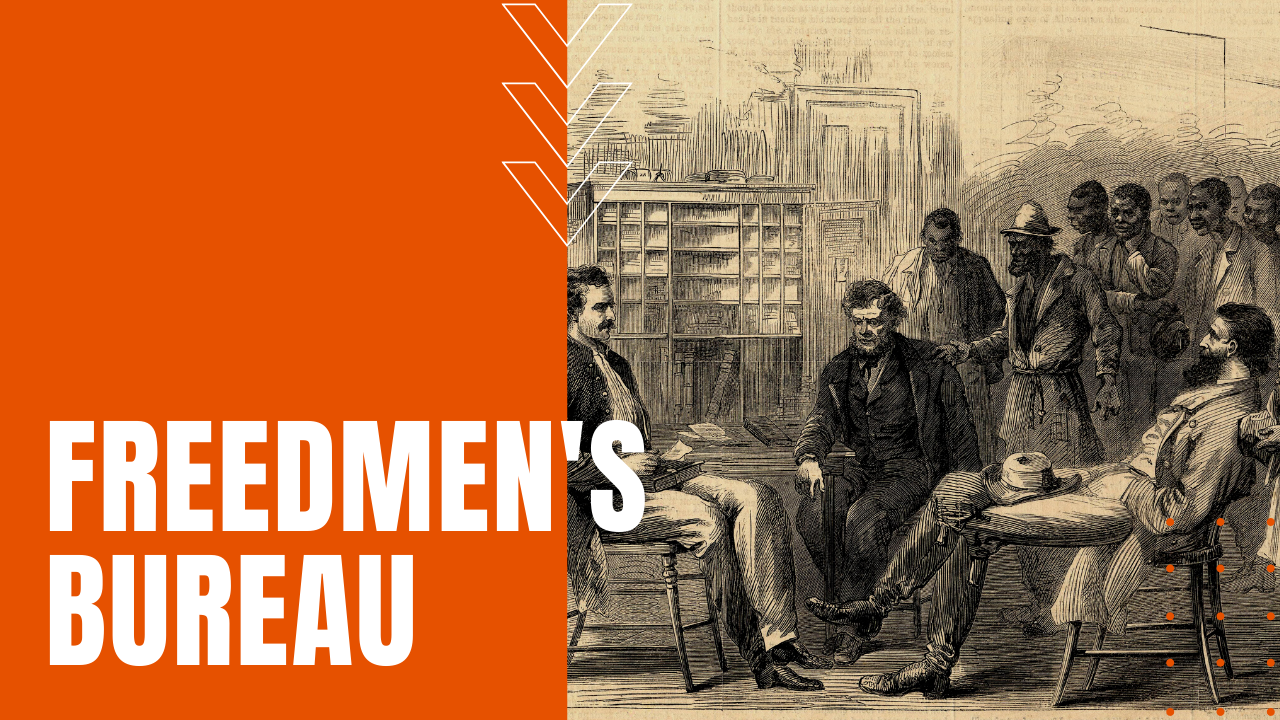The Freedmen’s Bureau of 1865

What was the Freedman’s Bureau?
Established by an act of Congress on March 3rd, 1865—two months before the Confederate’s surrender at Appomattox Court House—the Freedmen’s Bureau was conceived as a temporary agency to last the remainder of the war plus one year to follow. Union General Oliver Otis Howard was appointed commissioner over the Bureau under the authority of the War Department, with the intent of helping four million newly-freed blacks transition from slavery to a free-labor economy.
While many historians believe that the Bureau was groping in the dark against stiff opposition from white southerners and President Andrew Johnson, Howard nevertheless organized the Freedmen’s Bureau into districts covering the fifteen former slave-owning states, each district headed by an assistant commissioner.
Underfunded and understaffed throughout its existence—just 900 agents at its peak—Freedmen’s Bureau staff were frequently the only federal presence in the Reconstruction-era South, while nearly all of them were routinely subjected to ridicule and violence from white racist organizations such as the Ku Klux Klan, who viewed the Freedmen’s Bureau and its beleaguered staff as unwanted interference by the federal government.
How the Freedmen’s Bureau Helped
On the plus side, during its brief years of existence, the Freedmen’s Bureau fed millions of African Americans, built hospitals and provided healthcare services, at the same time negotiation labor contracts for blacks caught up in labor disputes. It also helped former slaves legalize marriage contracts, while searching for lost relatives after loved ones had been sold away from families during the final years of slavery.
The Bureau also became instrumental in building thousands of schools for African Americans, including such standout institutions as Howard University in Washington, D.C., Fisk University in Nashville and Hampton University in Hampton Virginia.
Who Got Rid of Freedmen’s Bureau?
By 1872, responding to pressure from white Southern legislators, the Freedmen’s Bureau was officially dismantled, and since that time, historians have widely debated the Bureau’s effectiveness in bringing aid to struggling African Americans, at the same time failing to provide significant long-term protection or desegregation inroads in the segregated South.
On the flip side, however, many believe the Bureau marked the first time the federal government proactively weighed in on issues of social welfare and civil rights that would eventually find their way into law under the Civil Rights Act of 1964 and the Voting Rights Act of 1965, awakening in African Americans the principles of equality that would blossom into the civil rights movement of 1954 to 1968, making the Freedmen’s Bureau a brief yet promising beginning to the slow embrace of racial equality in America.
